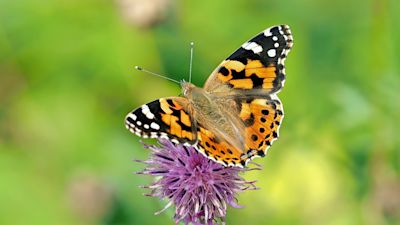Nature 'emergency' declared as annual butterfly survey shows record lows

Conservations have called on the government to declare a "nature emergency" after this year's Big Butterfly Count recorded its worst ever results.
The numbers were the lowest in the count’s 14-year history, with participants spotting just seven butterflies on average per count, down almost half on last year’s average of 12, and the lowest the survey has seen.
Each year wildlife charity Butterfly Conservation asks people across the UK to spend 15 minutes recording the butterflies they see in their gardens, parks or local countryside.
This year, many species, including including the Common Blue, Small Tortoiseshell, Painted Lady and Scotch Argus, showed a steep decline numbers compared to 2023.
Although butterflies were hit by a wet spring and cool summer, the charity said that these natural variations come on top of long-term serious declines, driven by habitat loss and extreme weather from climate change.
Subscribe free to our weekly newsletter for exclusive and original coverage from ITV News. Direct to your inbox every Friday morning.
Dr Richard Fox, head of science at Butterfly Conservation, said pesticide pollution was also a key factor.
He blamed intensive management of the countryside and gardens, including from an “obsession with tidiness that’s just really bad for nature”.
Butterfly Conservation is now writing an open letter to Environment Secretary Steve Reed, calling on the government to declare a “nature emergency” and further restrictions on certain pesticides, known as neonicotinoids.
“When used on farmland, these chemicals make their way into the wild plants growing at field edges, resulting in adult butterflies and moths drinking contaminated nectar and caterpillars feeding on contaminated plants," Dr Fox said.
“If we don’t act now to address the long-term drivers of butterfly decline, we will face extinction events never before seen in our lifetime.”
He said the neonicotinoid ban on its own would not reverse the declines, but would have a positive impact on insects.
Butterflies are a key indicator species; when they are in trouble we know that the wider environment is in trouble too.
In total, just over 935,000 butterflies and day-flying moths were recorded across the UK, in the period from July 12 to August 4, down more than a third on 2023’s figures.
Want a quick and expert briefing on the biggest news stories? Listen to our latest podcasts to find out What You Need To know...